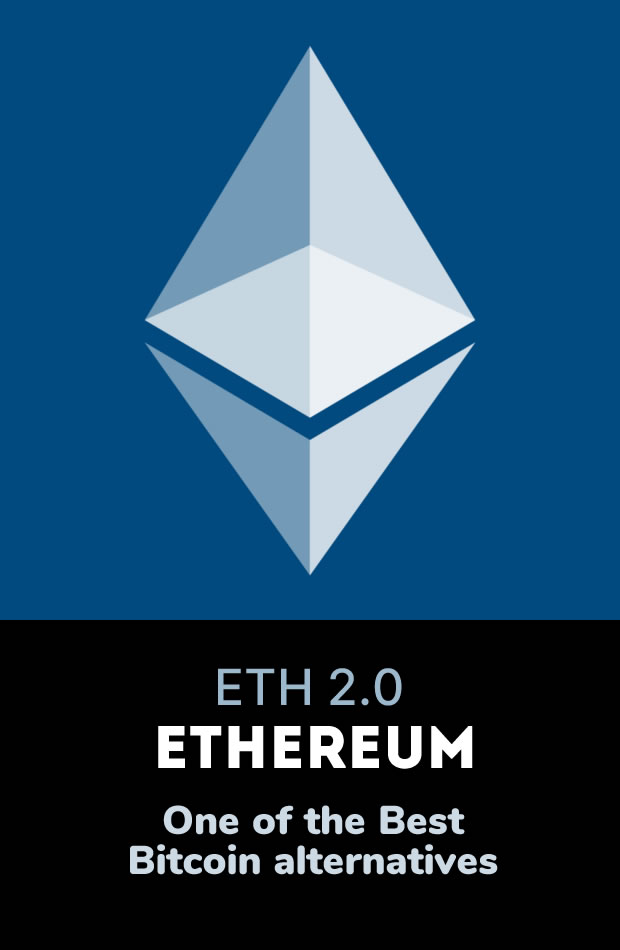Bitcoin has become the standard for the sector in addition to defining trends and sparking a wave of peer-to-peer, decentralized cryptocurrencies.
Known collectively as Alt-coins, these currencies that were modeled after Bitcoin have attempted to position themselves as improved or modified versions of Bitcoin.
Despite the fact that some of these currencies are simpler to mine than Bitcoin, there are costs involved, such as more risk due to lower liquidity, acceptability, and value retention.
How Do Cryptocurrencies Work?

Let’s take a step back and quickly go through what we mean by terms like cryptocurrency and altcoin before we look more closely at some of these alternatives to Bitcoin.
In general, a cryptocurrency is defined as digital or virtual money that takes the form of tokens or “coins.” Although a small number of cryptocurrencies have entered the real world via systems like credit cards, the vast majority are still entirely virtual.
The term “crypto” used to describe cryptocurrencies refers to the complex encryption that enables the production and processing of digital currency as well as their exchanges across decentralized systems.
A shared commitment to decentralization goes along with this crucial “crypto” element of these currencies; cryptocurrency is often produced as code by teams that include issuance methods (often, but not always, through a process).
Source: investopedia.com
5 Most Important Cryptocurrencies other than Bitcoin

Since Bitcoin prices are at record highs, we examine five cryptocurrencies from a list of more than 700 that might be worthwhile for you to consider (in no particular order).
While these advantages are excellent, what exactly are these Bitcoin alternatives? In this post, we examine five viable Bitcoin alternatives in greater detail and describe both their benefits and drawbacks.
With various qualities and objectives in mind, we selected these choices. In this manner, we produced a list that includes items for everyone.
Ethereum (ETH)

Launched in 2015, Ethereum is a decentralized software platform that makes it possible to create and manage distributed applications (apps) and smart contracts without the need for third parties’ oversight, control, or interference.
more about
b i t c o i n
Throughout 2014, Ethereum launched an ether pre-sale, which was warmly received. Applications on Ethereum are powered by ether, a cryptographic token that is specific to the platform.
Ether is used as a mode of transportation on the Ethereum platform and is mostly sought after by developers who want to build and run applications on Ethereum. Ethereum claims that everything may be “codified, decentralized, safe, and traded” with it.
Ethereum was divided into Ethereum (ETH) and Ethereum Classic after the 2016 DAO hack (ETC). Ethereum (ETH) had a market capitalization of $15.6 billion and a token price of $142.54 as of January 8, 2020.
Source: coinmarketcap.com
Litecoin (LTC)

Launched in 2011, Litecoin was one of the first cryptocurrencies to emerge after bitcoin and was frequently referred to as the “silver to Bitcoin’s gold.”
It was developed by Charlie Lee, a former Google developer and MIT graduate. Litecoin is built on an open source, decentralized global payment network that use “scrypt” as a proof of work and can be decoded with the aid of consumer-grade CPUs.
Litecoin is similar to Bitcoin in many ways, but it offers a faster transaction confirmation due to its faster block production rate. Litecoin is now accepted by an increasing number of businesses besides developers.
Zcash (ZEC)
The decentralized, open-source cryptocurrency Zcash, which was introduced before the end of 2016, appears promising. Zcash describes itself as “https” if Bitcoin is like http for money.
Zcash provides transaction privacy and limited transaction transparency. Thus, similar to https, Zcash asserts to offer additional security or privacy where all transactions are recorded and published on a blockchain, but specifics like the sender, receiver, and amount are kept secret.
Users of Zcash have the option of “shielded” transactions, which allow material to be encrypted using cutting-edge cryptographic methods, or zk-SNARKs, a zero-knowledge proof construction created by the company’s team.
Dash
A more covert variant of Bitcoin is Dash, which was once known as Darkcoin. As it operates on a decentralized mastercode network that virtually makes transactions untraceable, Dash provides extra anonymity.
Dash, which was introduced in January 2014, quickly gained a growing fan base. This cryptocurrency may be mined on a CPU or GPU and was invented by Evan Duffield.
Dash, which stands for Digital Cash and trades on the NASDAQ under the ticker symbol DASH, replaced the name “Darkcoin” in March 2015. None of its technology components, such as Darksend and InstantX, were altered by the renaming.
Ripple (XRP)
A real-time global settlement network called ripple delivers quick, safe, and affordable international payments. Banks may settle international payments using ripple “in real time, with end-to-end transparency, and at cheaper costs.”
more from
Top 5 10 15 20
The market value of the 2012-released Ripple currency is $1.26 billion. Since Ripple’s consensus ledger does not require mining, it differs from bitcoin and other altcoins in this respect.
Ripple’s structure uses less computational power and reduces network latency because it doesn’t require mining.
As a result, Ripple currently intends to distribute XRP primarily “through business development deals, incentives to liquidity providers who offer tighter spreads for payments, and selling XRP to institutional buyers interested in investing in XRP.” Ripple believes that “distributing value is a powerful way to incentivize certain behaviors.”
Ripple has so far been successful with its present business model, and established financial institutions who are aiming to transform cross-border payments still find it to be one of the most alluring digital currencies. In terms of total market capitalization, it is now the third-largest cryptocurrency in the world.
Ripple had a market capitalization of $9.2 billion and a per-token value of $0.21 as of January 8, 2020.
Source: coinmarketcap.com


















































